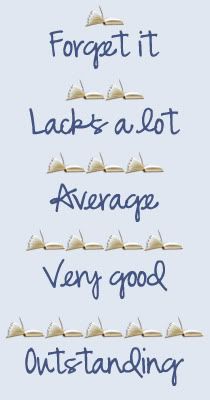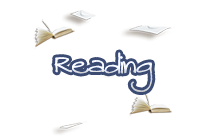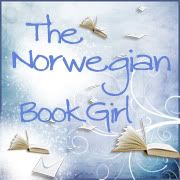 Today I would like to welcome Jeannette Walls to my blog.
Today I would like to welcome Jeannette Walls to my blog.Walls was born in Phoenix, Arizona in 1960. She moved to New York when she was 17 years old, and lived here for a while. Walls worked as a journalist in New York City in over 20 years and had her own column at MSNBC:Com. Today Walls lives in Virginia with her husband.
Walls made her debut as an author in 2000 with the book Dish: The Inside Story on the World of Gossip. Her real breakthrough as an author came with the memoir The Glass Castle, first published in 2005. Walls also wrote Half Broke Horses, which came out in 2009.
The Glass Castle have been translated into a lot of languages, including Norwegian, and this was the reason I recently interviewed Walls.
Here is the interview where Walls talks about her book and how her family have reacted to it, among other things:
Your novel The Glass Castle has just been released in Norway. Can you tell us a little bit about this book?
It’s about growing up with two brilliant, unconventional, complicated parents and trying to make sense of the chaotic world they created. It’s about sorting through that chaos and finding the beautiful gifts they gave me.
The book is a memoir from your childhood. Why did you decide to write this book?
One evening, I saw my homeless mother on the street digging through garbage. I asked her several days later what the heck I was supposed to tell people about her, and she gave me the best advice anyone has ever given me: “Just tell the truth.”
What was the most challenging thing you encountered whilst working on this book?
Rising to Mom’s challenge to just tell the truth. The truth, as anyone who’s compared notes of their childhood with a sibling knows, is a tricky critter and it takes on many shapes. So much of it depends on your perspective and how you choose to see things.
What are you most proud of when it comes to this book?
The Glass Castle is being read in a number of schools – both high schools and colleges. I get lovely letters from well-to-do students telling me that the book has made them see poverty differently. And I get heart-wrenching letters from kids from the wrong side of the tracks saying that after having read my story, they realize that if I made it, they can too. Nothing could make me happier.
How have your siblings and the rest of your family reacted to this book, and what do your siblings do today?
My family has been great. I think the book has actually brought us all closer.
My brother, Brian, was with me from day one. I showed him the manuscript while I was working on it and he gave me feedback. Brian has a steel-trap memory and would have called me on something if I got it wrong. He’s retired from the police force and now works with Habitat for Humanity, building houses for folks who can’t afford to buy one.
Lori was a little ambivalent about the idea of my telling our story. She would never have asked me not to write it, but she couldn’t understand why the heck I would want to revisit some of the darker corners of our past. She is still an artist and still living in Manhattan and has been quite wonderful about the book.
I didn’t discuss the book with my younger sister Maureen because we’d lost touch, but one of the many blessings that’s come about as a result of telling my story and that Maureen and I have reconnected. She has been absolutely lovely about The Glass Castle.
Mom has been pretty darned fabulous, too. I offered to show her the book while I was working on it, but she wasn’t interested. She read it after publication, and was a little upset with my description of her driving, but other than that, she’s been incredibly wise and philosophical, which is to her great credit, because the portrait of her isn’t entirely flattering. She said, “I don’t see everything the way that you do, but I understand why you saw it that way, and you had to tell the truth as you saw it.” Mom, by the way, is no longer homeless; she lives with me in rural Virginia and we’re closer now than we’ve ever been. She’s a hoot and continues to astonish me with her perspective on things, and still paints like a fiend.
I was really moved by some of the scenes in this book, especially the scene where you “get” Venus for Christmas. What was the most important lesson your parents taught you?
Dad taught me to dream and Mom taught me optimism. If you get those gifts from you’re parents, you’re extraordinarily lucky.
Why should the readers in Norway pick up your book and read it?
People have incredibly different reactions to my story. Some readers think I was neglected or even abused, some have actually told me that they were a little jealous of my childhood. Once a man told me that he found the book so upsetting that he could barely finish it, but his wife said she thought it was hilarious and laughed throughout. Many book clubs have told me that my story caused the most heated debate their club has ever had. I’ve stopped trying to guess what people’s reactions.
Do you feel relieved, now that you have told your story to the world? Or, in other words: how has your reaction to having this book published been?
A very wise man once told me that secrets are like vampires: they suck the life out of you, but they can exist only in the darkness. Once they’re exposed to the light, there’s a moment of horror when you see them, but then – poof – they loose their power. I have found that to be very true.
The Glass Castle has stayed on the NYT bestseller list for years, and the rights have been sold to a lot of countries. Why do your think the book have become so popular?
I have no idea. I’m still pinching myself.
Despite the serious topics dealt with in this book, you never point a finger at anybody and the book is not depressing. How did you achieve that?
I love my parents and I believe that they loved me. I’m extraordinarily happy with the way things have turned out for me, and if you are where you want to be, why regret how you got there?
Who are your favorite authors, and which book have made the greatest impression on you?
When I was ten years old, I read A Tree Grows in Brooklyn by Betty Smith. I was pretty much an outcast at the time, and the character of little Francie Nolan became my closest friend. She wasn’t very cute or popular, either, and she also loved to read and write. And Francie Nolan she could adore her no-count, charming, alcoholic, day-dreaming dad, then so could I.
Are there any plans to make this book into a movie?
It has been optioned for a movie and a script has been written. But with Hollywood, you never know what’s going to happen until you see the credits rolling.
Have you found your Glass Castle yet?
Oh yes. Many times over.
Is there anything you would like to add/say to the readers?
We all have a story, and I’m grateful to anyone who chooses to share mine.
Thank you for taking the time to do this interview, Jeannette Walls.
The Glass Castle have received a lot of praise and prizes, including the Christopher Award, the American Library Association's Alex Award and the Books for Better Living Award.
The book is a fascinating, warm and brave retelling of a special childhood. If you have not read this book, I would strongly suggest that you do so. It had me glued to the pages.



































 Oslo Time
Oslo Time










1 comment:
This sounds amazing - she sounds amazing. It sounds like her childhood must have been rough but that she has turned into an amazing woman nonetheless. I'll definitely keep an eye out for this book. Thanks for the interview!
Post a Comment